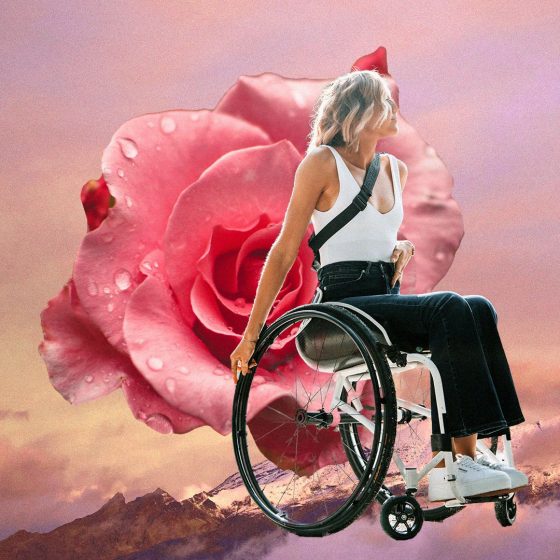How old were you when you had the sex talk? Maybe more importantly, who was having this talk with you? If you’re like many women, this talk happened at puberty, usually after you got your first period. It was either given by your mother, or if she was too uncomfortable with it, your health teacher at school. If our own mothers weren’t comfortable talking to us about sex, is it any wonder that, as women, we are not confident about our sexuality?
The idea of women being seen as sexual is nothing new. The image of sexiness has been around for ages and has primarily been for the purpose of enticing men. The problem is that women have been forced to buy into this image and live up to it. This has led to the tropes that we often use to classify women: the good girl, the slut, the fun girlfriend who transforms into the perfect wife and mother, or the hot woman you date but never marry.
Unfortunately, like all stereotypes, these narrow views are damaging.
So, what’s going wrong?
When women are taught about their bodies, they are often lectured only on the bad things that can happen to them when they engage in sexual intercourse. The choruses of preventing sexually transmitted infections (STIs) and pregnancies are the loudest. Alongside these, young women are often warned not to send the wrong signals, and not to be a tease. If an assault does occur, who do you think gets blamed first?
When women are taught about their bodies, they are often lectured only on the bad things that can happen to them when they engage in sexual intercourse
Remember, these conversations are usually occurring during the time a girl has her first period. The onset of menarche, or the first occurrence of menstruation, is a big, confusing change itself. Not to mention, women are starting to get their periods at younger ages. The likelihood of an eleven-year-old really grasping what is happening to her body, much less the concepts of sex, STIs, and pregnancy is a lot! It’s a lot even for a full-grown adult to absorb.
Yet, this is when we choose to discuss sex with young women, and shame on us. No, really. The shame is put on women when the messiness of our monthly cycle is so heavily prioritized over other aspects of sexual intimacy and wellness: routine wellness exams, pregnancy prevention and contraception, consent. In fact, in typical American sex-ed classes, the boys are taken off to a completely different room so as to be spared the gory details of the process necessary to sustain human life on the planet. And if the sex talk were revamped to include all areas in which young women must be educated, don’t you think the boys should be included in those conversations too?
Women deserve better education about their own bodies, not only for health and pleasure, but for empowerment
In Peggy Orenstein’s book, Girls and Sex, she takes a deep dive into how and when the subject is tackled all around the globe. When she interviewed American women between the ages of 15-20, Orenstein found that the idea of being a strong woman didn’t seem to translate to sexual identity. Many reported that they hoped to please their partner in whatever act they were engaged in, but didn’t demand or expect reciprocity. And these were the women who were consenting.
However, some cultures discuss how sex is a two-way street. Take the Netherlands, for example. When Dutch parents speak to their kids (and yes, the discussions happen prior to puberty), they talk about joy in the act of sex and the responsibility that both partners have to each other, according to Orenstein. It is something that can and should be a physical pleasure for women, too! It can be an emotional connection to another person—or not—but shouldn’t the woman be a stakeholder in that decision?
Women deserve better education about their own bodies, not only for health and pleasure, but for empowerment. For instance, did your mom or sex ed teacher describe your anatomy in such detail that you were aware that you could have a clitoral and/or a vaginal orgasm? No? Talk about a superpower to be wielded.
Yes, the uterus and the ovaries and the whole process of creating a whole, new human in your body are all to be hailed and marveled over. But our reproductive organs are more than just mechanical structures for keeping the human race going. I’m not suggesting that we get as cavalier as our male counterparts (and I realize that I am generalizing here) in viewing sex as mainly for pleasure and sometimes for procreating. But couldn’t we find a happy medium that celebrates the whole picture of the female reproductive system? I mean, our mouth is a complicated structure. We’re taught that our mouth is technically for chewing our food and breathing but it is also for savoring tasty treats, singing, and laughing, right?
The sex talk is outdated. And “the sex” talk is not the same as “the period” talk. Women need to be educating each other on the wonder of our bodies that only we can know. Mothers, grandmothers, cool aunts, step-mothers, cousins, and friends need to be conversing with the young women in their lives about all the aspects of sexuality. Take ownership. Be confident and proud. This is your body. Dive into the anatomy. If we don’t know how it works, how can we ever expect a partner to know? Or how can we ever expect young women to know and discover in a safe and healthy way? (Yes, we need to be talking about masturbation, too!)
It’s time to take back control of our sexuality, to understand what our bodies are capable of, to demand pleasure for ourselves, to feel sexy because we find ourselves sexy. But it starts with education, and it’s time we take back control of that too.
What do you think?
What’s your experience with the sex talk? Do you wish you had been told more? Do you talk to your girlfriends about sex? What will you share with your daughters/young women in your life that you wished you had known? What should we be teaching our sons? Our doctors?









